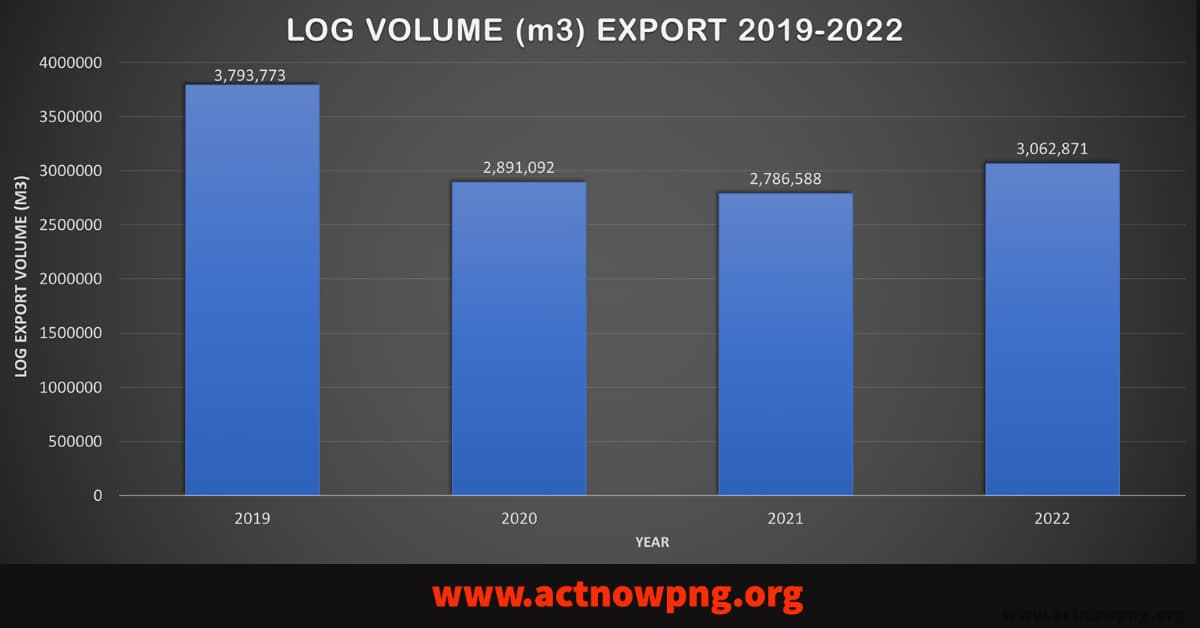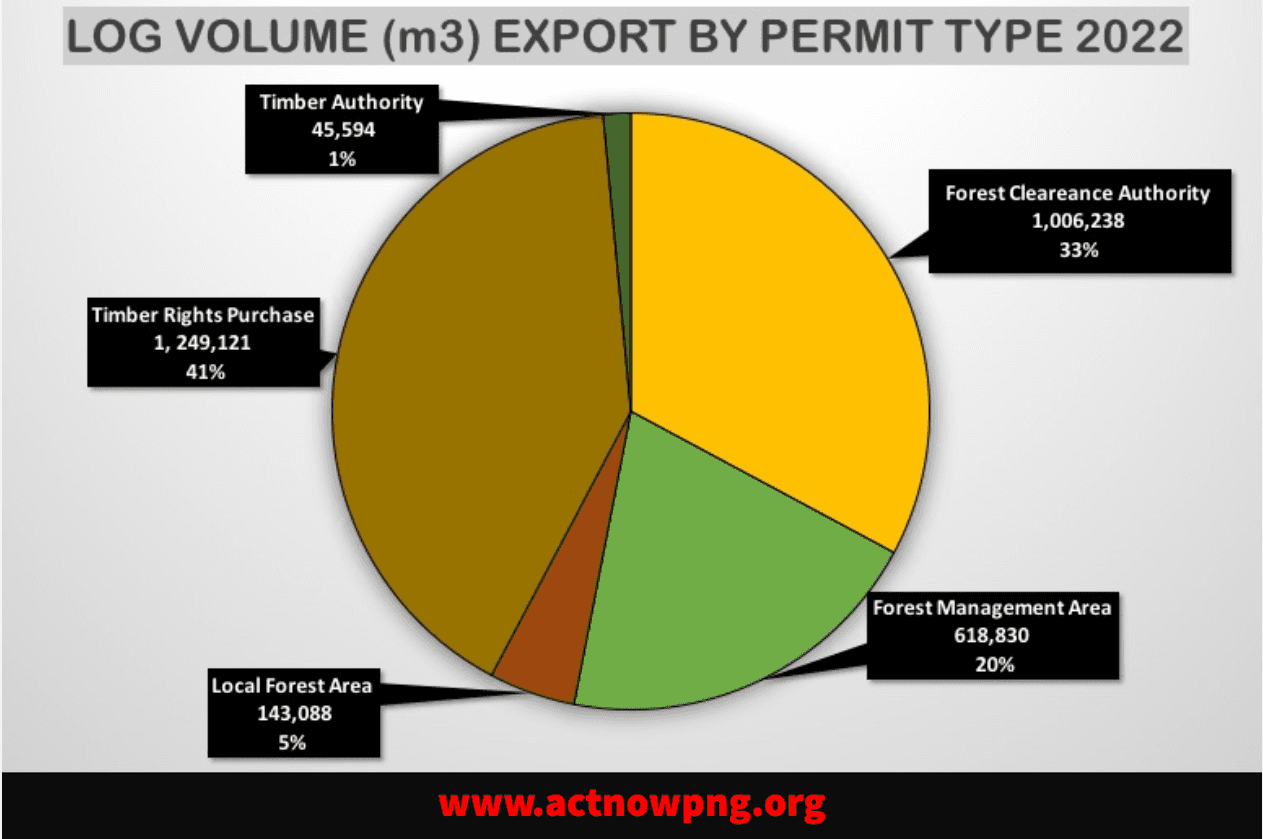Log Export Volume Increase Despite Prime Minister's Log Ban Promises
The recently released 2022 SGS report regarding log exports in Papua New Guinea largely contradicts the Marape Government’s pledge to reduce round log exports and cease the issuing of new licenses to foreign owned logging companies.
The report titled Log Export and Monitoring Report December 2022 shows increases rather than reductions, and highlights more than one commitment failure by the government.
Contrary to Prime Minister James Marape’s commitment to reducing unprocessed log export volumes and increase downstream processing, the log export volume in 2022 actually increased by 10% on 2021 and was at highest level since 2019.

In addition, the PNG Forest Authority, as the responsible government agency for ensuring sustainable forest management and the allocation of timber harvesting rights, approved nine (9) new foreign-operated projects that started exports in 2022.
This is again contrary to the Prime Minister’s commitment that there will be no new licenses issued to foreign-owned companies for log export projects from 2020 onwards.
He had said the government will only allow landowners, local and provincial government companies to get licenses to cut logs to sell as they all migrate to a post 2025, where they want all logging in Papua New Guinea to be in a downstream processing mode, but that is clearly not the case as the report reveals.
The Log Export and Monitoring report also shows clear defiance of a court order by Deputy Chief Justice Ambeng Kandakasi, ordering a halt in logging in colonial era Timber Rights Purchase or TRP projects. https://actnowpng.org/blog/blog-entry-multiple-logging-projects-appear-be-defying-court-ban
From the report, 41% of all log exports in 2022 came from TRP areas.
TRP was a form of agreement used during the colonial era between logging companies, the colonial administration and landowners to allow the harvesting of timber. The TRP was outlawed in the Forestry Act 1991 and replaced by the Forest Management Agreement (FMA).
The National Forestry Board has promised “NO” new Forest Clearance Authority or FCA’s in 2023 but in 2022, existing FCA projects contributed 33% of all log exports. This is a clear sign, these licenses are unlawfully being used as a cover for large-scale logging operations and not agricultural clearances.

The Log Export and Monitoring data principally highlights alarming concerns about whether the Marape Government is really serious about taking back what rightfully belongs to Papua New Guineans and maximizing the returns from our natural resources.
